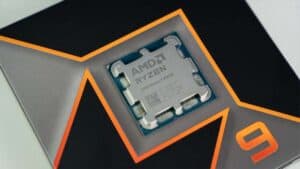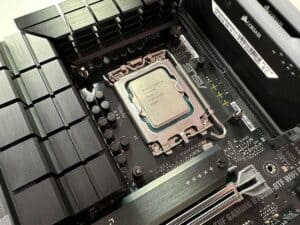What CPU is equivalent to the PS4?
What CPU is equivalent to the PS4? Let's find out

WePC is reader-supported. When you buy through links on our site, we may earn an affiliate commission. Prices subject to change. Learn more
The PS4, a much-loved gaming console that still stands the test of time. Even though it is now nearly a decade old, getting a PS4 is still a great option for first-timers to break into console gaming.
Now Read: What CPU is equivalent to the PS5?
You have to wonder, though, how hardware from 2013 can still keep up with today’s demanding titles. In this article, I’ll share with you what CPU the PS4 uses, and we’ll explore what PC CPUs are equivalent to it.
Ever thought about building a rig that can replicate the PS4’s performance to a tee while still retaining the practicality and convenience offered by a PC? Well, let’s find out if you can.
What CPU does the PS4 use?
The PS4 uses an APU (accelerated processing unit), which is just a CPU and GPU consolidated. The CPU therein is a custom 64-bit “Jaguar” processor from AMD.
The Jaguar architecture is intended for use in low-power mobile machines such as laptops. Therefore, it isn’t very strong – as the processor’s specs will soon confirm.
- 8 cores. 2 modules of 4 cores each
- 1.6GHz clock speed
- 4MB L2 cache. 2MB for each 4 core module.
Now, I know what you’re thinking. That sounds incredibly underpowered, so much so that it’s almost hard to believe that the PS4 is able to provide the gaming performance it does.
While 8 singe-threaded cores is fair for gaming, even by modern standards, the 1.6GHz clock speed is lackluster.
That’s Intel Celeron territory, and you definitely wouldn’t be able to game with those specs on a PC.
How, then, is the PS4 able to offer such smooth 1080p gaming performance?
There are several factors at play here. One of the major ones is optimization. When optimizing a game for PC, developers have to consider all types of CPUs and then all the system variations that those CPUs could produce.
When optimizing for a console, there is only 1 hardware configuration to optimize for, and developers can produce much more efficient code.
There’s also the fact that the PS4 runs many of the more demanding games at 30FPS. Due to a large screen, tuns of motion blur, and very consistent frame times, it feels a lot smoother than 30FPS on PC. But it is ultimately 30FPS tailored to feel very smooth.
Competitive shooters like Fortnite still run at 60FPS with lowered CPU-intensive graphic settings such as view distance, but they also tend to be somewhat lighter on the CPU.
What CPU is equivalent to the PS4’s CPU?
Unfortunately, there isn’t really any modern PC-based CPU that’s a direct equivalent to the Jaguar 8, simply because of the latter’s low-core clock.
The two quad-core modules used in the PS4’s CPU very closely resemble the Athlon 5150. But of course, you can’t use two CPUs in a single gaming rig.
The closest CPU equivalent we could find is the Intel Atom c2750. But even this very weak processor wins out in raw specs, with a 2.6GHz boost clock. You would have to underclock it quite significantly and disable Intel’s Turbo boost to end up with the same specs as the Jaguar.
Now that that’s said and done – what processor should those looking to replicate the PS4’s performance on PC use?
Intel core i3-10100
I would highly recommend a modern i3 CPU, such as the i3-10100. While the CPU is a quad-core, it matches Jaguar’s 8 threads, thanks to Intel’s hyperthreading technology. It has a much higher 4.3 GHz boost clock, but, practically speaking, you’ll see it run games at similar framerates to the PS4.











